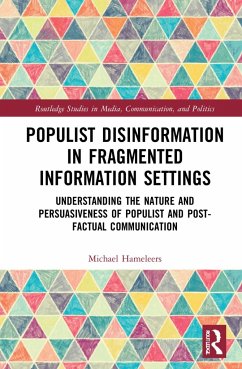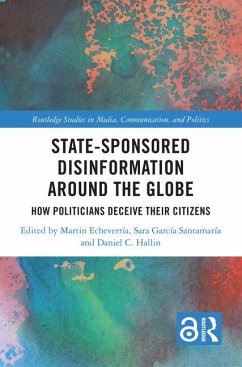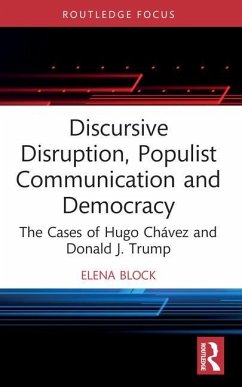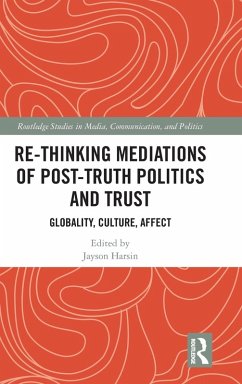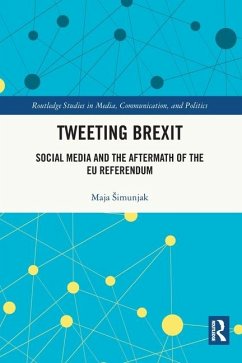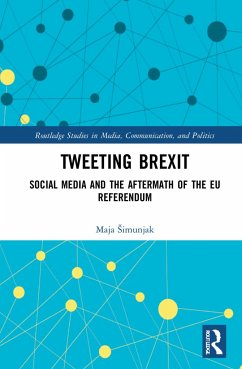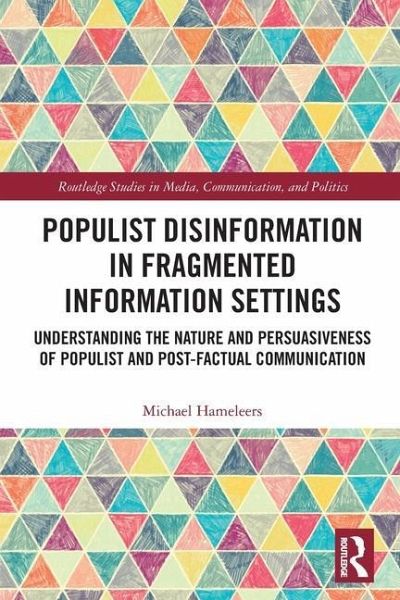
Populist Disinformation in Fragmented Information Settings
Understanding the Nature and Persuasiveness of Populist and Post-factual Communication
Versandkostenfrei!
Versandfertig in 6-10 Tagen
43,99 €
inkl. MwSt.
Weitere Ausgaben:

PAYBACK Punkte
22 °P sammeln!
In this highly relevant work, Dr. Michael Hameleers illuminates the role of traditional and social media in shaping the political consequences of populism and disinformation in a mediatized era characterized by post-factual relativism and the perseverance of a populist zeitgeist.Using comparative empirical evidence collected in the US, the UK, and the Netherlands, this book explores the politics and discursive construction of populism and disinformation, how they co-occur, their effects on society, and the antidotes used to combat the consequences of these communicative phenomena.This book is ...
In this highly relevant work, Dr. Michael Hameleers illuminates the role of traditional and social media in shaping the political consequences of populism and disinformation in a mediatized era characterized by post-factual relativism and the perseverance of a populist zeitgeist.
Using comparative empirical evidence collected in the US, the UK, and the Netherlands, this book explores the politics and discursive construction of populism and disinformation, how they co-occur, their effects on society, and the antidotes used to combat the consequences of these communicative phenomena.
This book is an essential text for students and academics in communication, media studies, political science, sociology, and psychology.
Using comparative empirical evidence collected in the US, the UK, and the Netherlands, this book explores the politics and discursive construction of populism and disinformation, how they co-occur, their effects on society, and the antidotes used to combat the consequences of these communicative phenomena.
This book is an essential text for students and academics in communication, media studies, political science, sociology, and psychology.





